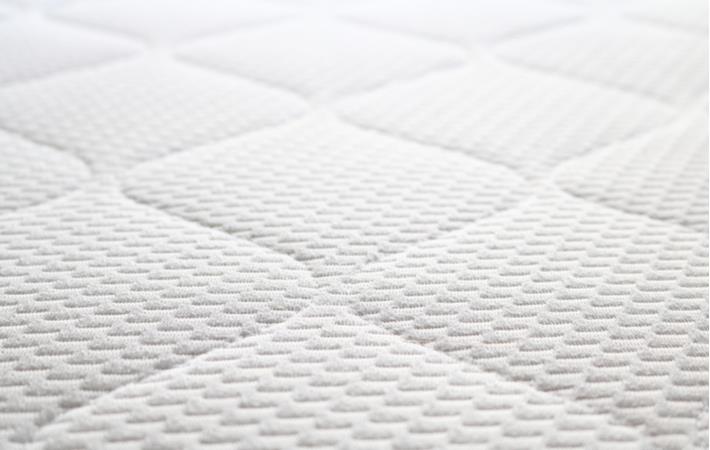Interviews
Basf moves ahead on used mattresses recycling
11 Jul '20
3 min read

Pic: Shutterstock
Basf has worked out a chemical recycling process for used mattresses which breaks down flexible polyurethane back to its two building blocks. Laboratory tests have successfully started at the Schwarzheide site in Brandenburg, Germany. Most mattresses are thrown away after an average of ten years, squandering resources and creating high quantities of waste.
“The materials are to be recycled in such a way that they can be used for the production of new mattresses,” explains Shankara Keelapandal, who is responsible for the isocyanates business in Europe. “The target is to recover the raw materials with a quality comparable to that of non-recycled/virgin raw materials,” he adds.
By taking this step, Basf is breaking new ground and responding to the raised expectations of the foam and mattress industry as well as those of consumers. At the same time, it underlines its own efforts to increase sustainability. “We want to take further steps toward a circular economy,” comments Keelapandal.
“Our process breaks down the flexible polyurethane back to its two building blocks, polyol and isocyanate. From there we can produce new foam with a significantly lower carbon footprint,” explains technical project manager Arno Volkmann. First pilot volumes will be delivered to project partners later this year. However, it is likely to be several years before mattresses with recycled materials are commercially available. “The project is technically complex,” comments Volkmann. “The potential to reduce waste volumes and save resources makes it all worth it.”
The average lifecycle span of a mattress is about 10 years. At the end of that lifecycle it goes to waste and as such is either incinerated or ends up on landfill. This generates high volumes of waste and also requires that further valuable raw materials are needed for manufacturing new soft foam mattresses – above all crude oil.
The circular economy (CE) concept aims to decouple economic growth from the use of finite resources. “We look at solutions for customers along the value chain to re-enter waste back into product lifecycles. Basf is investing in cutting-edge technologies and already applying the circular economy concept in a number of ways to speed up the transition,” the company says.
New recycling technologies will be required that can recover those materials which are not chemical recycling, that is, the cracking of plastic waste into raw materials for the chemical industry. These technologiesbeing recycled today. One possible way can be feedstock recycling, also called require the know-how of the chemical industry to enable this recycling process. Basf is therefore thoroughly evaluating different options for chemical recycling, it says.
“The materials are to be recycled in such a way that they can be used for the production of new mattresses,” explains Shankara Keelapandal, who is responsible for the isocyanates business in Europe. “The target is to recover the raw materials with a quality comparable to that of non-recycled/virgin raw materials,” he adds.
By taking this step, Basf is breaking new ground and responding to the raised expectations of the foam and mattress industry as well as those of consumers. At the same time, it underlines its own efforts to increase sustainability. “We want to take further steps toward a circular economy,” comments Keelapandal.
“Our process breaks down the flexible polyurethane back to its two building blocks, polyol and isocyanate. From there we can produce new foam with a significantly lower carbon footprint,” explains technical project manager Arno Volkmann. First pilot volumes will be delivered to project partners later this year. However, it is likely to be several years before mattresses with recycled materials are commercially available. “The project is technically complex,” comments Volkmann. “The potential to reduce waste volumes and save resources makes it all worth it.”
The average lifecycle span of a mattress is about 10 years. At the end of that lifecycle it goes to waste and as such is either incinerated or ends up on landfill. This generates high volumes of waste and also requires that further valuable raw materials are needed for manufacturing new soft foam mattresses – above all crude oil.
The circular economy (CE) concept aims to decouple economic growth from the use of finite resources. “We look at solutions for customers along the value chain to re-enter waste back into product lifecycles. Basf is investing in cutting-edge technologies and already applying the circular economy concept in a number of ways to speed up the transition,” the company says.
New recycling technologies will be required that can recover those materials which are not chemical recycling, that is, the cracking of plastic waste into raw materials for the chemical industry. These technologiesbeing recycled today. One possible way can be feedstock recycling, also called require the know-how of the chemical industry to enable this recycling process. Basf is therefore thoroughly evaluating different options for chemical recycling, it says.
Fibre2Fashion News Desk (SV)
Popular News
































-Ltd..jpg?tr=w-120,h-60,c-at_max,cm-pad_resize,bg-ffffff)





.jpg?tr=w-120,h-60,c-at_max,cm-pad_resize,bg-ffffff)
.jpg?tr=w-120,h-60,c-at_max,cm-pad_resize,bg-ffffff)






